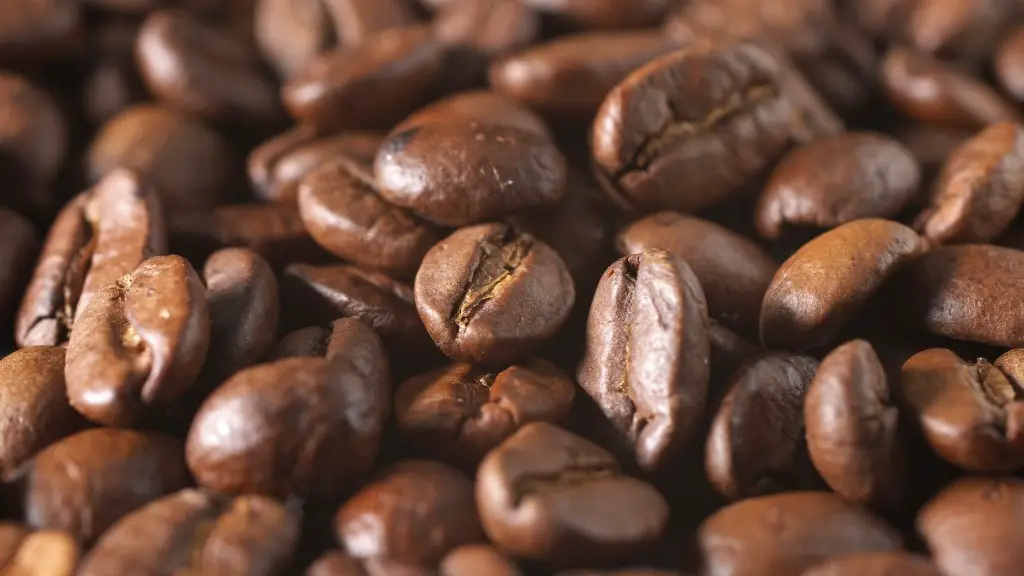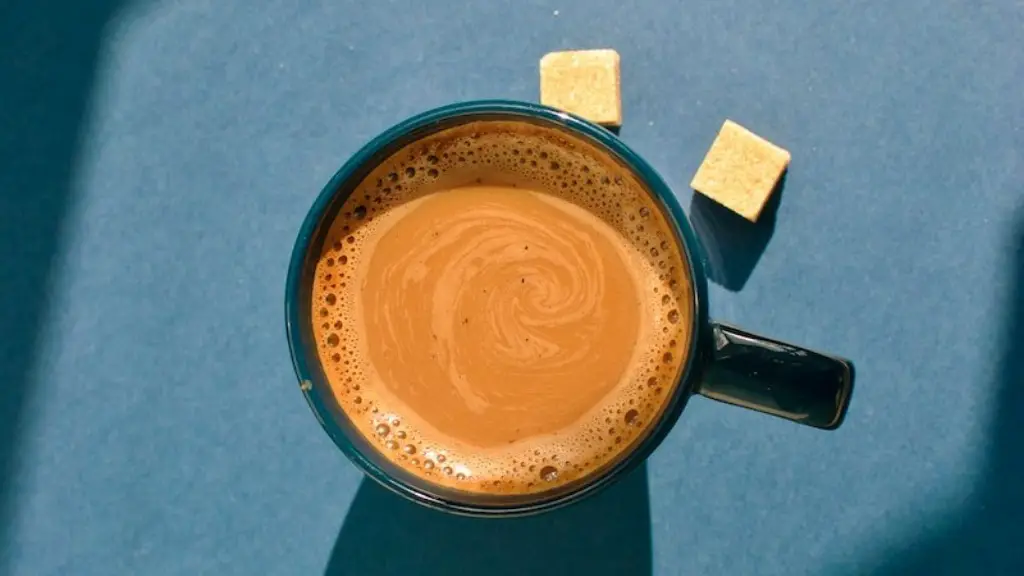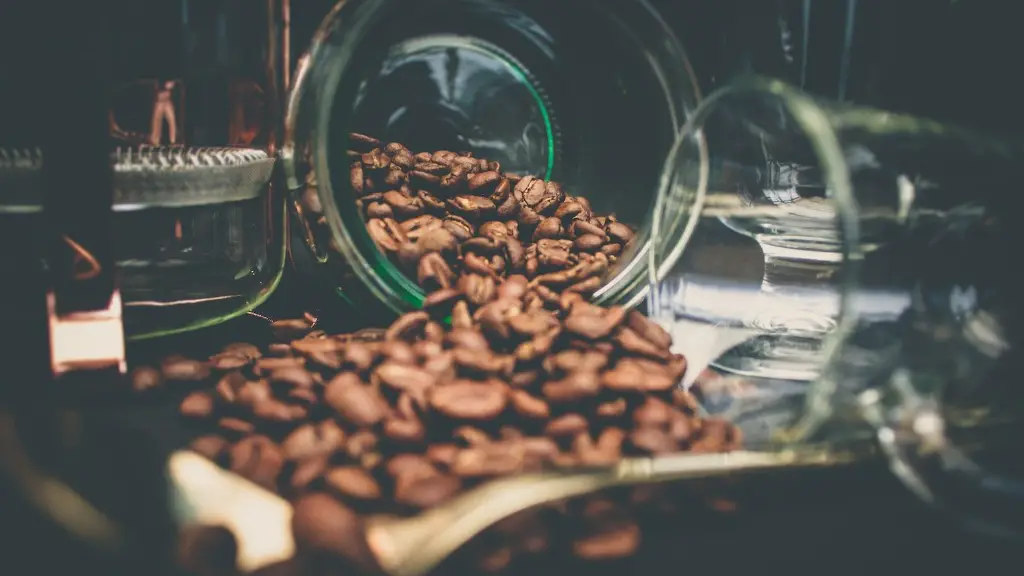Coffee is one of the most consumed beverages in the world. It can be a great pick-me-up and a reliable source of energy. However, just like anything else, too much can end up being unhealthy. When it comes to coffee, the question is: How much should you drink per day?
The recommended amount of caffeine consumption is 400 milligrams or 4 cups of coffee per day for healthy adult humans. This intake is said to have minimal health risks. However, individuals’ body can react differently to caffeine therefore it’s important to pay attention to how much you drink. People with health issues should always consult their doctor to confirm how much caffeine is right for them.
According to a study published in Harvard Health Publishing, moderate coffee consumption can have some health benefits. This study focused on a whole range of coffee types – regular and decaffeinated coffee, instant and ground coffee. The study found that moderate coffee consumption was associated with a lower risk of type 2 diabetes, liver disease and cardiovascular problems. Other research found that coffee can help people stay focused and alert while working, drive safely and can reduce the risk of developing some cancers. Coffee also contains some important nutrients like magnesium, phosphorus and riboflavin.
However, it’s good to remember that coffee is not for everyone. Too much coffee can have some negative side effects – coffee can make you anxious, can interrupt your sleep and even increase the risk of stroke in some individuals. Some people can get addicted to caffeine and have headaches or other physical and emotional changes if they can’t have their daily fix. It’s also important to know that most store-bought coffees tend to contain very high levels of sugar, which can be bad for your teeth, not to mention your waist line.
The bottom line is that while moderate coffee consumption can bring some health benefits, it’s important to pay attention to your own body and avoid drinking too much. If you are drinking more than four cups per day or feel that you can’t quit your daily intake, it could be a good idea to consult your physician.
Benefits To Mental Health
Some studies suggest that drinking coffee can have positive effects on mental health. Coffee helps people to stay energised and alert, allowing them to concentrate better. This can prevent exhaustion as well as anxiety, making it easier for them to focus on work or study. Coffee also produces endorphins, which are known to make people feel better when consumed in moderate amounts.
Coffee can be great at times when people are feeling overwhelmed or stressed. This can be done by just taking some time to enjoy a cup of coffee with friends or by themselves. It can also be used as a way to relax or connect with others.
Coffee can also work wonders for people in creative fields. It can help them come up with different ideas and solutions that they may not have otherwise thought of. It can help them to think more freely and explore different perspectives and possibilities. This can be very beneficial in fields such as art and writing, because it allows people to express their creative side more freely and openly.
Drinking coffee can also be beneficial for people who are trying to break unhealthy habits, such as smoking or overeating. It can provide them with a healthy alternative that can help them to curb the cravings associated with those unhealthy habits.
In conclusion, it can be seen that coffee can have some positive benefits for people’s mental health, but it should be consumed in moderation. Too much coffee can cause jitters and anxiety, which can be very hard to cope with. It is important to find the right balance between staying energised and alert, and avoiding the side effects that come with over-consumption.
Benefits to Skin Health
Studies have found that coffee can be beneficial for skin health. Coffee contains antioxidants which help to protect the skin from the damage caused by free radicals. This can help to reduce signs of aging, such as wrinkles and dark spots. It can also help to reduce inflammation, which can help to prevent acne and other skin irritations.
Coffee also contains caffeine, which can help to reduce puffiness around the eyes and can help to reduce the appearance of dark circles. The antioxidants that can be found in coffee can also help to reduce the appearance of scars and dark spots. Coffee also helps to hydrate the skin, as it promotes blood flow and can help to prevent dehydration.
In addition, coffee can help to brighten the skin, making it look more radiant. This happens because coffee helps to exfoliate the skin, removing dead skin cells and revealing the new, brighter looking skin below. Coffee can also help to improve circulation, which can help to give the skin a more even tone.
More research is still being done on the benefits of coffee for skin health, but it is clear that coffee can have positive benefits that can help to improve the look and feel of your skin. It is important to remember to drink coffee in moderation and also to use a sunscreen when going out in the sun to protect the skin from damage.
Types of Coffee
There are many different types of coffee and each one has different levels of caffeine. The most popular types of coffee are espresso, latte, cappuccino and mocha. Espresso is the strongest type of coffee, as it has a concentrated amount of coffee and it is usually served as a shot. Latte, cappuccino and mocha all have espresso as the base, but they have different amounts of milk and other ingredients added to them.
Instant coffee is also a popular type of coffee, as it is quick and easy to prepare. It is commonly used at home and in offices, as it is the cheapest type of coffee and has a reasonable amount of caffeine.
Cold brewed coffee is becoming increasingly popular. This type of coffee is prepared cold, rather than with hot water, and it can take several hours to prepare. This type of coffee has a much smoother taste and less acidity than other types of coffee.
Nitro-infused coffee is a relatively new type of coffee that is served cold and has an effervescent, almost beer-like quality. This type of coffee is made using nitrogen and it has a creamy, foamy texture.
Finally, there is decaffeinated coffee, which is usually made with a process that removes the caffeine from the beans. Decaffeinated coffee tends to have a milder flavour than regular coffee, as it has much less caffeine.
Effects of Regular Consumption
Regular consumption of coffee can have some effects on the body. Caffeine can help to increase alertness, focus and concentration, which can be beneficial for work or study. It can also help to reduce the risks of certain diseases, such as type 2 diabetes and some cancers.
However, regular consumption of coffee can also have some negative side effects. Too much caffeine can cause jitters and anxiety, as well as insomnia. It can also cause dehydration and it can be hard on the stomach, causing stomach pain and upset.
Regular consumption of coffee can also lead to addiction. This can cause people to rely on coffee in order to feel energised and alert. It can also cause physical changes, such as headaches and irritability, when it is not consumed.
Finally, regular consumption of coffee can make it harder for people to get a good night’s sleep. Caffeine has a half-life of around 4-6 hours, so it can take a long time for it to leave the body and allow for good quality sleep.
Healthier Alternatives
If you are looking for a healthier alternative to coffee, there are some good options. Tea is one alternative that is packed with antioxidants and has less caffeine than coffee. Green tea, in particular, has many benefits and is known to be good for your health.
Herbal teas are also a great option. There are many different varieties to choose from, such as chamomile, hibiscus, rooibos and ginger. These teas are naturally caffeine free and can help to relax you.
Another option is to make your own coffee with natural ingredients such as cocoa powder and cinnamon. This can help to reduce the amount of sugar and caffeine, while still giving you a coffee-like taste.
Finally, there are many coffee alternatives on the market, such as chicory and dandelion coffee. These alternatives have a similar taste to coffee, but have no caffeine or sugar. They are also packed with nutrients, such as minerals and vitamins, making them a healthier alternative to coffee.





